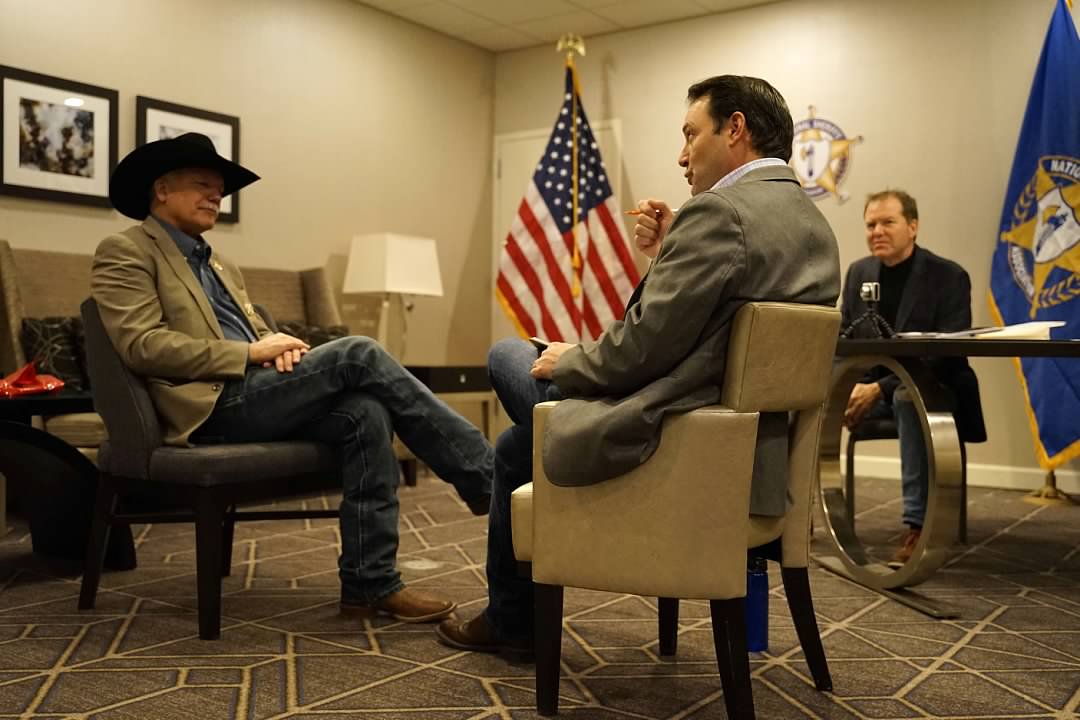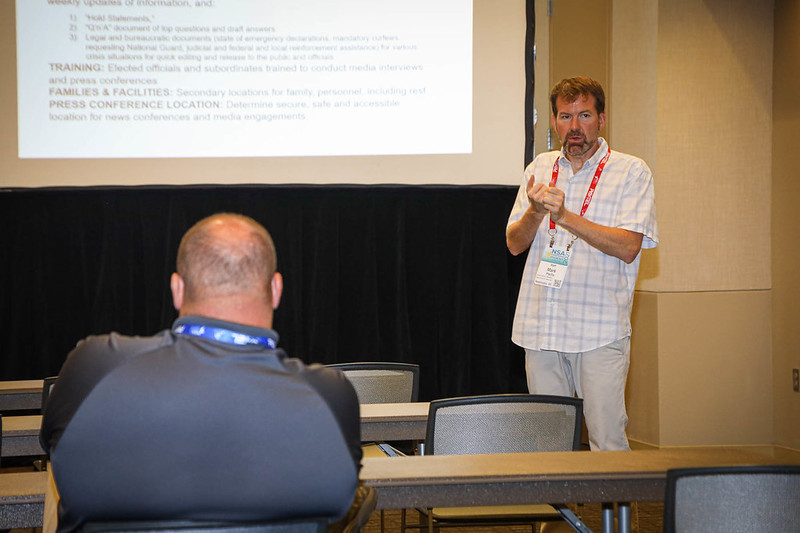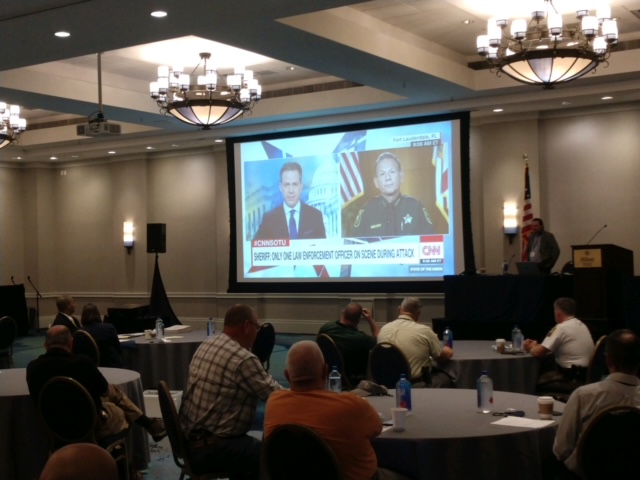NSA Crisis Response and Communications Training
 Sheriff’s offices are dealing with major crises, from severe weather in Mississippi, mass shootings in Texas to civil unrest in Minnesota. How we respond is vital to our mission to keep our communities safe. Sheriffs and our staff must learn the right communication and crisis response skills to effectively achieve that goal.
Sheriff’s offices are dealing with major crises, from severe weather in Mississippi, mass shootings in Texas to civil unrest in Minnesota. How we respond is vital to our mission to keep our communities safe. Sheriffs and our staff must learn the right communication and crisis response skills to effectively achieve that goal.
NSA training events have helped state associations, sheriffs and their staff, from Oregon to Vermont hone their skills to meet those challenges in a crisis and when speaking with the public and the media.
For more than two decades, NSA instructors have led crisis response during the biggest events the U.S. has faced. From 9/11 to the COVID pandemic, NSA’s experienced instructors have prepared officials with successful crisis management strategies for the Iraq and Afghanistan wars, Hurricanes Katrina and Sandy, civil unrest and protests and the southern border crisis.
NSA's experts will train your team to:
- Develop a Crisis Response Plan to ensure clear roles and actions;
- Craft messages and communications for before, during and after an incident; and
- Prepare for, train for and respond to critical incidents, including natural disasters, active shooters, kidnappings, major protests and terrorist activities.
They will also deliver essential training on: 
- Working with national media,
- Press conference preparation and participation,
- Social media monitoring and response,
- Tabletop scenarios,
- In-depth evaluation and formation of a crisis response plan, and
- Identifying emerging threats.
Objectives:
- Learn best practices of developing a strategic communications plan, building a plan that advances your office’s vision and goals, including tactics, timeframe, costs, etc., what you will need to execute that plan and to produce results and defines success
- Understand the news and how it’s made, including different types of media and the 24-hour news cycle, what do reporters look for in determining what’s newsworthy and how to pitch and place stories
- Define the Rules of Engagement with media, what you need to know when talking to reporters, differences between on-the-record, off-the-record, on-background, not for attribution, etc., different rules for different media, using social media effectively and weighing the pros/cons of engaging
- How to prepare to get fact-checked on the front end, the mechanics of responding, the mechanics of responding, when less is more and how to manage a false fact-check
- How to track results and measure effectiveness, including tracking and reporting and testing and learning
Testimonials:
“The NSA trainers were extremely helpful in getting my office ready for a series of critical media engagements, that eventually led to solving important cases in my county. Their strategic framework and advice were immensely helpful. I encourage my colleagues to bring in the NSA team to get essential training so we can all be more successful communicators.” - Sheriff Brent Waak, Polk County, WI
“Everything changed with the DAPL protests when NSA showed up, we were getting beat on many fronts, and they helped change the tide and the narrative.” - Sheriff (Ret.) Paul Laney, Cass County, ND
“We brought in the NSA crisis training folks for our state association meeting. We had over 150 sheriffs and personnel attend and it was well received. State Associations and Sheriff’s Offices need to stay ahead of the curve and get trained and be prepared for a crisis that could happen at any time.” - Sandy Horton, Kansas Sheriffs’ Association Executive Director

For more information contact Pat Royal: patrickroyal@sheriffs.org or 703.838.5341.



